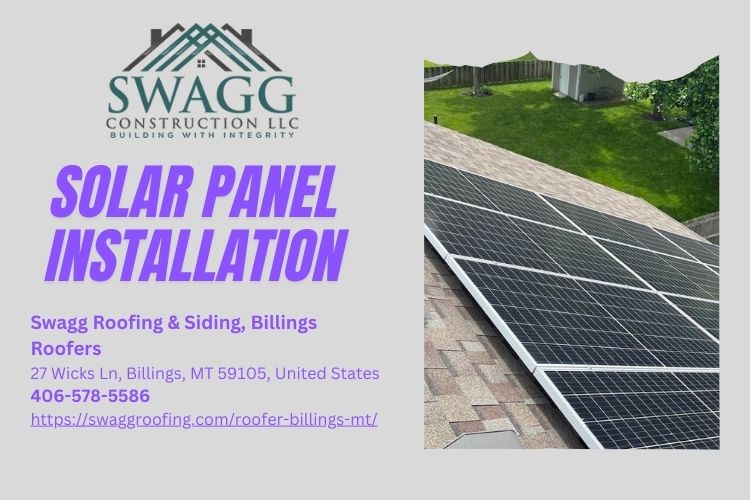Introduction
When it comes to home maintenance, few tasks are as daunting as roof repair. The roof is your home's first line of defense against the elements, and ensuring its integrity is vital for protecting your property. Homeowners often find themselves at a crossroads: should you tackle those pesky leaks and missing shingles on your own, or is it time to call in a professional contractor? In this guide, we’ll explore all aspects of DIY roof repair and help you make that crucial decision.
DIY Roof Repair: When to Tackle It Yourself and When to Call a Billings Contractor
Deciding whether to undertake roof repairs yourself or to hire a professional can be challenging. It's essential to weigh factors such as the severity of damage, your skill level, available tools, and safety concerns.
Understanding Roof Damage
What Are Common Types of Roof Damage?
Roof damage can manifest in various ways. Understanding these types can guide you in deciding whether it's a simple fix or an extensive project requiring professional intervention.
- Missing or Damaged Shingles: Wind and hail can displace or break shingles. Leaks: Often caused by damaged flashing or worn-out roofing materials. Ponding Water: Indicates poor drainage; can lead to leaks if not addressed. Cracked or Warped Roofing Materials: Usually a sign of age and wear.
Assessing the Severity of Damage
Before jumping into action, assess the damage. Is it localized? A few missing shingles might warrant a DIY approach. However, widespread issues or structural damage may require professional expertise.
Safety First: Preparing for DIY Roof Repair
Essential Safety Gear
If you decide to take on the repair yourself, safety should be your top priority. Equip yourself with:
- Non-slip shoes Hard hat Safety harness Gloves Eye protection
Tools You’ll Need for Basic Repairs
Here’s a quick list of tools that will likely come in handy:
| Tool | Purpose | |------------------|-------------------------------------------| | Ladder | Accessing the roof safely | | Roofing nails | Securing shingles | | Hammer | Driving nails | | Utility knife | Cutting roofing materials | | Caulking gun | Sealing gaps with roofing sealant | | Safety harness | Preventing falls while working |
When Is DIY Repair Appropriate?
Minor Issues You Can Handle
Certain minor repairs are well within reach for most homeowners:
Replacing individual shingles. Sealing small leaks with roofing cement. Cleaning gutters and downspouts. Fixing minor flashing issues around chimneys.The Importance of Roof Replacement vs. Roof Repair
Understanding When Replacement Is Necessary
While repairs can extend the life of your roof, sometimes replacement is the only option left. Here’s how to determine when replacement may be necessary:
- Age: If your roof is more than 20 years old, consider replacement. Extensive Damage: If more than 30% of your roof has serious issues, replacement might be wise.
Signs It's Time To Call A Billings Contractor
Recognizing Complex Problems
Sometimes, what starts as a simple leak turns into something much more complex:
Structural Issues: Sagging areas could indicate severe underlying problems. Widespread Mold: Indicates prolonged moisture exposure; professionals should handle remediation. Electrical Concerns: If leaks have penetrated into wiring areas, call an expert immediately.Choosing the Right Contractor in Billings
How to Evaluate Local Contractors
Hiring a contractor involves careful consideration:
Look for licensed professionals who carry insurance. Read online reviews but seek personal recommendations where possible. Ask for detailed quotes before making any decisions.Costs Associated with DIY Roof Repair vs Professional Help
What Are Average Costs for Repairs?
Understanding costs is crucial whether you're going DIY or hiring someone else:
- Minor Repairs (shingle replacement): $200 - $500 Major Repairs (extensive leakage): $1,000 - $3,000
Meanwhile, complete roof replacements can cost anywhere from $5,000 to over $15,000 depending on materials used.
Frequently Asked Questions (FAQs)
Q1: How do I know if my roof needs repair?
A1: Look for visible signs like missing shingles, water stains on ceilings indoors, or sagging areas on the roof itself.
Q2: Can I use regular caulk for roofing?
A2: No! Use specific roofing sealants designed for durability against weather elements.
Q3: How long does a typical roof last?
A3: Asphalt shingles usually last about 20–25 years; metal roofs can last up to 50 years with proper maintenance.
Q4: Do I need permits for roof repairs in Billings?
A4: Yes! Check local regulations regarding permits before beginning significant repairs or replacements.

Q5: What should I do if I find mold during my inspection?
A5: Immediately contact a professional mold remediation service; it's not safe to handle mold without proper equipment.
Q6: Is winter an appropriate time for roofing repairs?
A6: Generally not recommended due to cold temperatures affecting materials; however, emergency repairs may still be Roofing contractor needed.
Conclusion
Choosing between DIY roof repair and calling a contractor in Billings comes down to assessing risk versus reward effectively. While many homeowners can manage minor repairs successfully with some basic knowledge and tools, others may find themselves overwhelmed by more significant challenges that demand professional expertise.
Remember that maintaining your home’s roof is not just about aesthetics; it's about safeguarding your entire investment from potential water damage and structural failures that could arise from neglecting repairs. Whether you roll up your sleeves or place that call to an expert contractor—make sure you're making informed choices every step of the way!
Contact Us
Swagg Roofing & Siding
Address: 27 Wicks Ln, Billings, MT 59105, United States
Phone number: 406-578-5586